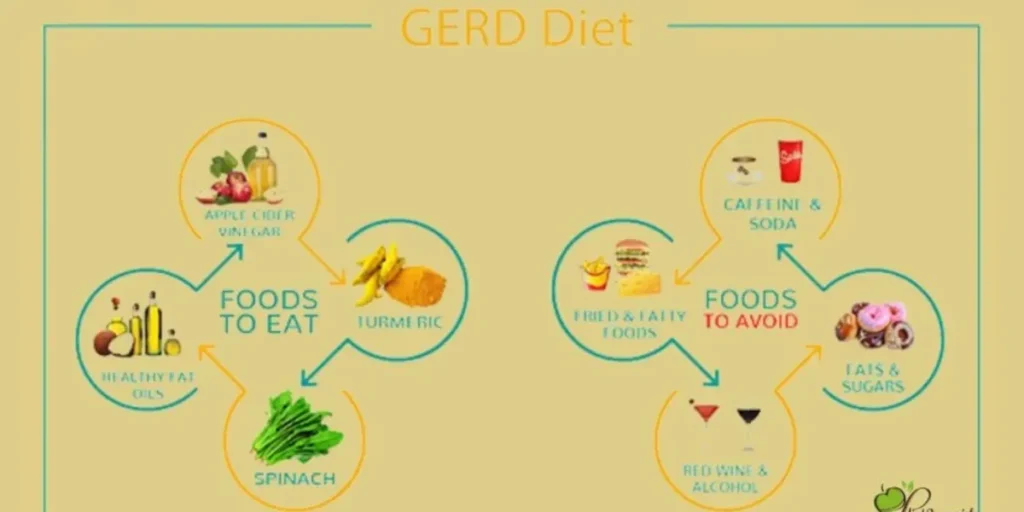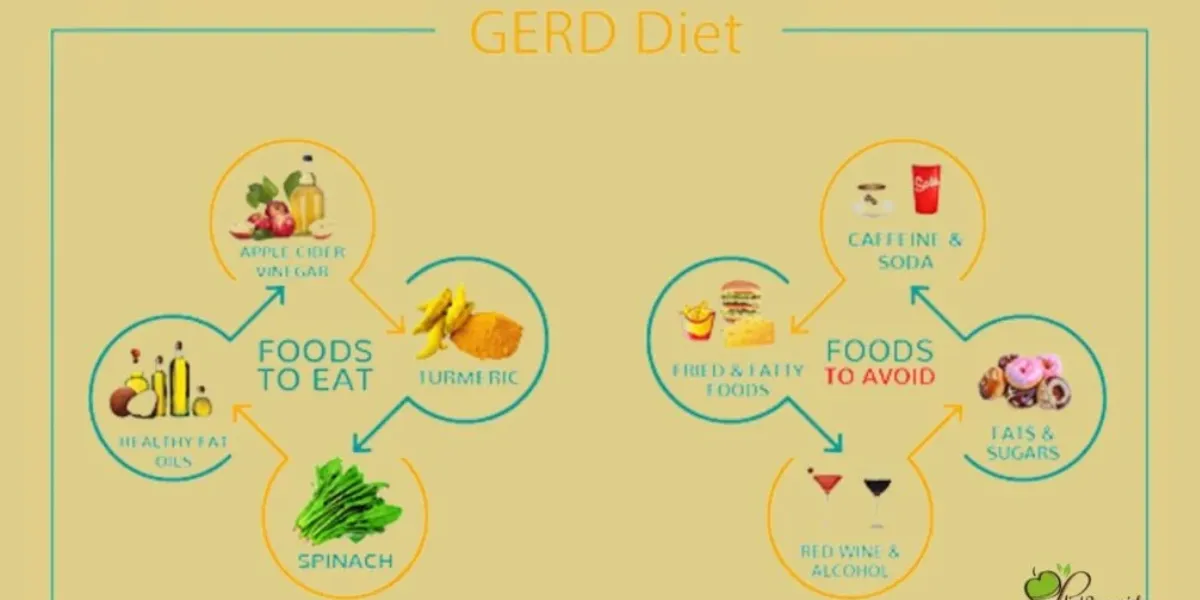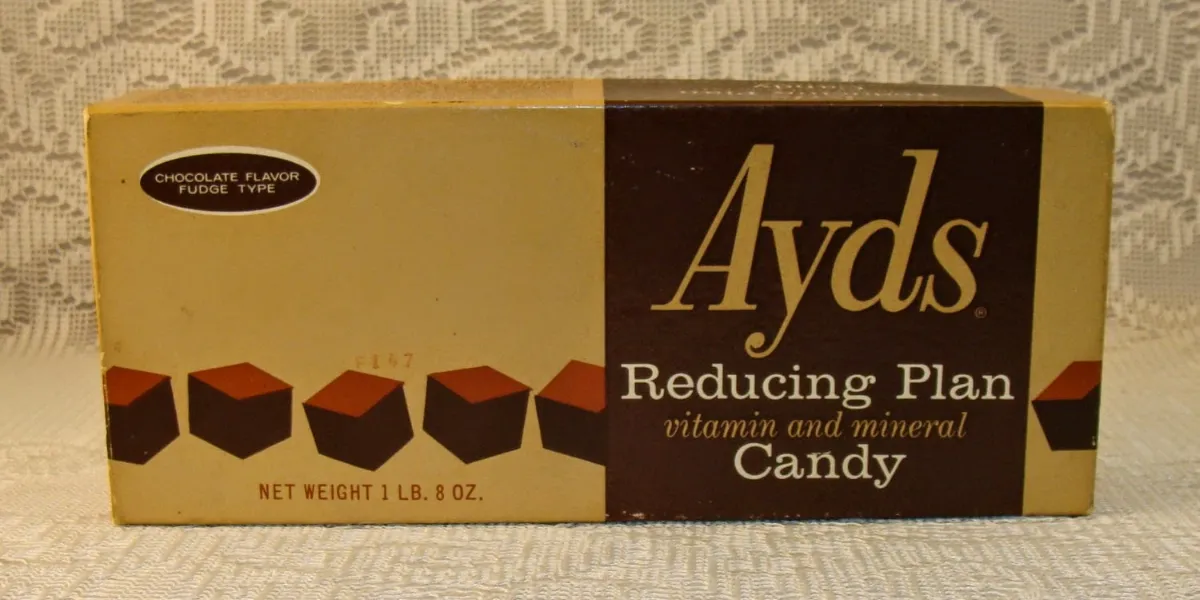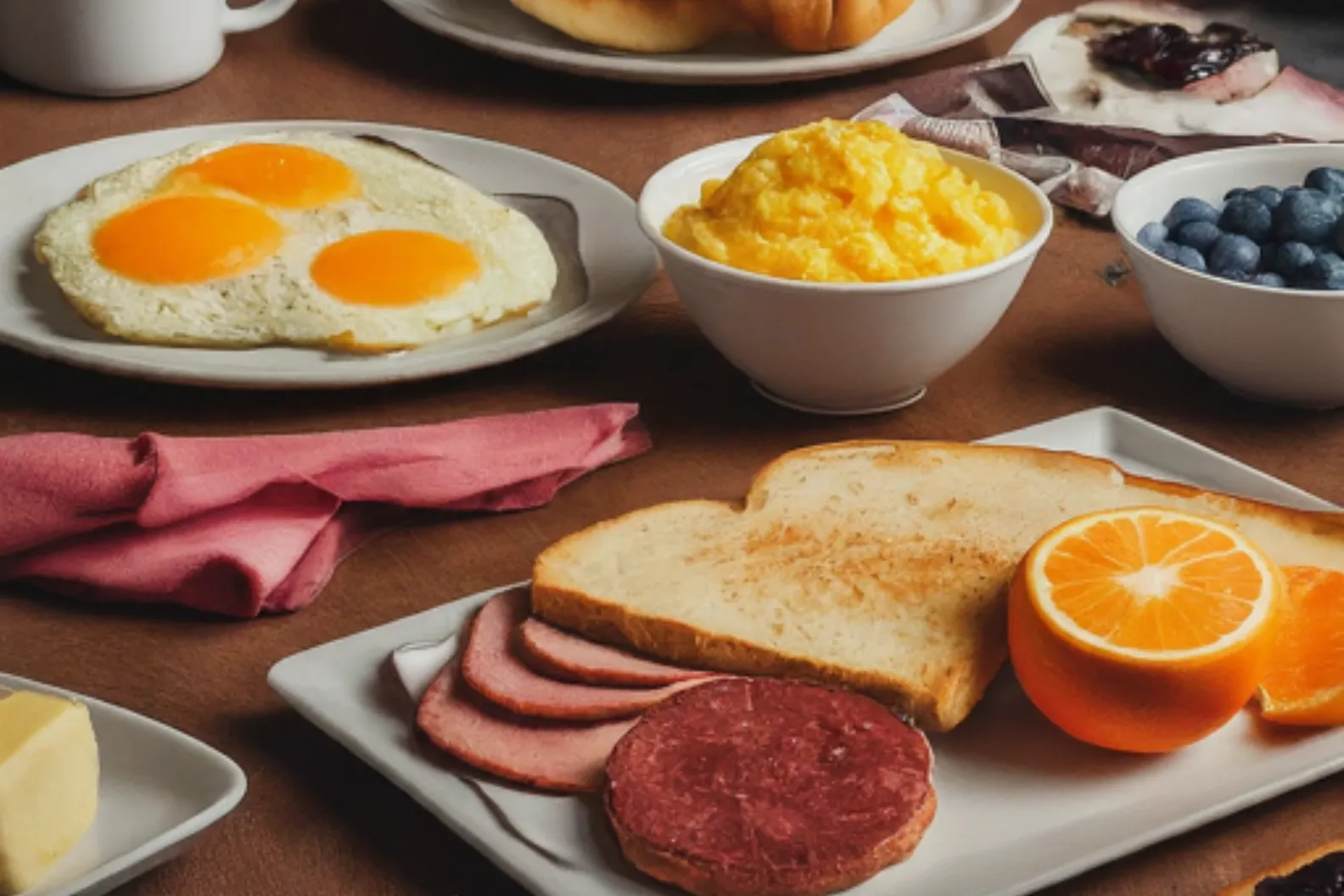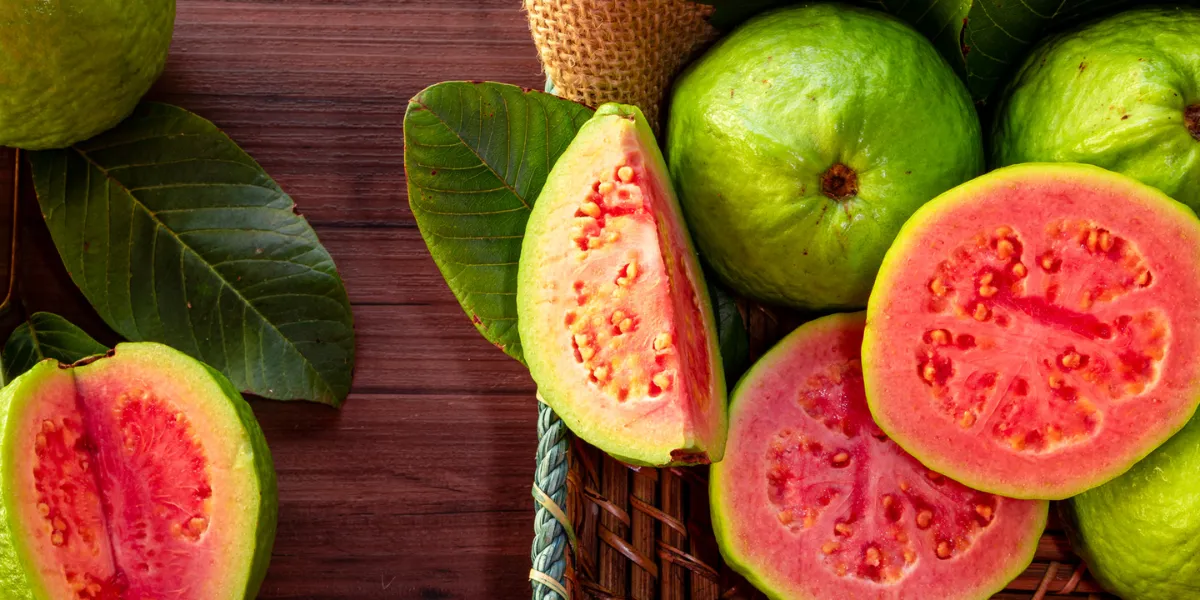Table of Contents
ToggleIntroduction: 7-Day GERD Diet Plan
Gastroesophageal Reflux Disease (GERD) can significantly impact your daily life. Managing symptoms often involves lifestyle changes, and a key aspect is adopting the right diet. In this comprehensive guide, we’ll delve into a 7-day GERD Diet Plan designed to help alleviate acid reflux symptoms and promote overall digestive health.
Day 1: Kickstart with a GERD-Friendly Breakfast
One of the fundamental questions is, “What is a good breakfast for GERD?” Opt for oatmeal topped with sliced bananas or a smoothie made with almond milk and berries. These options are gentle on the stomach, reducing the risk of triggering acid reflux.
Day 2: Foods that Accelerate GERD Relief
For those wondering, “What foods help GERD go away fast?” Incorporate more green vegetables, lean proteins, and whole grains into your diet. Foods rich in fiber can aid digestion and contribute to long-term relief from GERD symptoms.
Day 3: Dinner Choices for GERD
Wondering what you can eat for dinner with GERD? Grilled chicken or fish paired with a side of steamed vegetables and quinoa is an excellent option. Avoid heavy, spicy, or acidic foods in the evening to minimize the risk of nighttime reflux.
Day 4: Embrace a Strict Diet for GERD
Adhering to a strict diet for GERD involves avoiding trigger foods. Steer clear of citrus fruits, tomatoes, chocolate, and caffeinated beverages. Opt for smaller, more frequent meals to prevent overloading your digestive system.
Day 5: Eggs and GERD: Are They Compatible?
Are eggs okay with GERD? Yes, eggs are generally well-tolerated by individuals with GERD. They are a good source of protein and can be included in your GERD-friendly diet. However, preparation matters – opt for boiled or poached eggs instead of fried.
Day 6: Foods that Reduce Acid in the Stomach
Curious about what foods reduce acid in the stomach? Include alkaline-rich foods like melons, celery, and bananas in your diet. These can help neutralize excess stomach acid, providing relief from GERD symptoms.
Day 7: The Banana Benefit
Do bananas stop GERD? Yes, bananas are known for their natural antacid properties. They can help soothe the irritated lining of the esophagus, making them a go-to snack for individuals managing GERD.
Bonus Tips: Timing Matters
Does fasting stop GERD? While fasting for short periods may offer relief, prolonged periods without food can increase acid production. Aim for regular, balanced meals and consider smaller snacks between meals to keep acid reflux at bay.
Nighttime Eating and GERD
Are apples good for GERD? Indeed, apples are a good choice, but be cautious about eating them too close to bedtime. Late-night snacking, in general, can exacerbate GERD symptoms. Allow at least two to three hours between your last meal and bedtime.
Meal Frequency with GERD
How many meals a day with GERD? Opt for five to six smaller meals instead of three large ones. This helps prevent overeating and keeps your digestive system from becoming overwhelmed, reducing the likelihood of acid reflux.
Is GERD Permanent?
Is GERD permanent? While it can be a chronic condition, lifestyle modifications, including dietary changes, can effectively manage symptoms. Consult with a healthcare professional for personalized advice.
Bread and Protein Choices for GERD
Is bread good for GERD? Choose whole-grain or gluten-free options. When considering protein, lean sources like chicken and fish are generally well-tolerated. Pay attention to portion sizes and cooking methods to minimize the risk of triggering reflux.
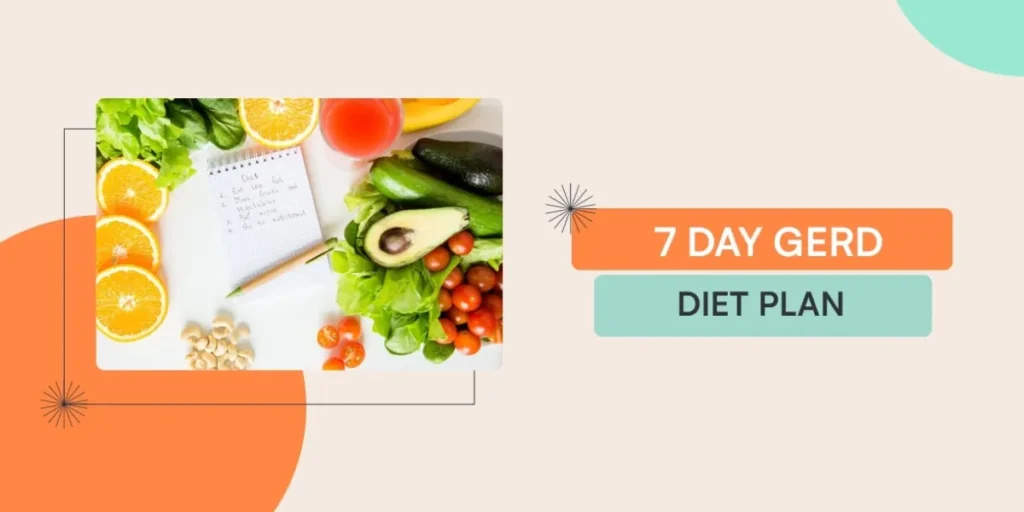
Conclusion: Crafting Your GERD Diet Plan
In summary, a well-structured 7-day GERD Diet Plan can significantly contribute to managing acid reflux symptoms. Tailor your meals to include GERD-friendly options, monitor portion sizes, and be mindful of when you eat. For more detailed guidance on GERD and related topics, visit Umedical Bank.
Follow this expert advice to strike the right balance and enjoy relief from GERD symptoms, paving the way for a healthier, more comfortable life.
Finding GERD-Friendly Proteins
What protein is good for GERD? Opt for lean protein sources like skinless poultry, fish, and tofu. These options are less likely to trigger acid reflux. Experiment with different cooking methods, such as grilling or baking, to maintain their GERD-friendly status.
The Versatility of Chicken for GERD
Is chicken okay for GERD? Yes, chicken is a versatile and generally well-tolerated protein for individuals with GERD. However, it’s crucial to prepare it in a GERD-friendly manner, such as grilling, baking, or boiling, to avoid excess fats that can contribute to reflux.
Adding Potatoes to Your GERD Diet
Is potato good for acid reflux? Potatoes can be a good addition to your GERD diet when prepared appropriately. Opt for baked or boiled potatoes instead of fried options. The skin of the potato contains valuable fiber, which can aid digestion.
Hydration and GERD
While focusing on solid foods, don’t forget about beverages. Water is the best choice for staying hydrated and can help dilute stomach acid. Avoid acidic drinks like citrus juices and caffeinated beverages, as they can contribute to GERD symptoms.
Hot Water and Acid Reflux Relief
Does drinking hot water help acid reflux? Sipping warm water can have a soothing effect on the digestive tract. However, avoid extremely hot temperatures, as they may irritate the esophagus. Consider adding a touch of honey for an extra element of relief.
Implementing Lifestyle Changes
Managing GERD isn’t just about what you eat. It also involves lifestyle changes. Elevate the head of your bed, practice mindful eating, and avoid lying down immediately after meals. These adjustments can complement your dietary efforts in alleviating GERD symptoms.
The Role of Stress in GERD
Stress can exacerbate GERD symptoms. Incorporate stress-reducing activities into your routine, such as yoga, meditation, or deep breathing exercises. Balancing stress levels is a crucial aspect of holistic GERD management.
Regular Check-Ins with Healthcare Professionals
Is GERD permanent? While lifestyle changes can be incredibly effective, it’s essential to have regular check-ins with healthcare professionals. They can monitor your progress, adjust your treatment plan, and provide ongoing support for managing GERD.
Wrapping Up Your 7-Day GERD Diet
As you wrap up your 7-Day GERD Diet Plan, reflect on the positive changes you’ve made. Pay attention to how your body responds to different foods and adjust your diet accordingly. Remember, individual responses to dietary changes may vary, so tailor your plan to suit your unique needs.
Explore Further with Umedical Bank
For in-depth articles, expert advice, and additional resources on GERD and related health topics, visit Umedical Bank. Their comprehensive information can empower you to make informed decisions about your health and well-being.
This 7-day GERD Diet Plan serves as a foundation for managing acid reflux through strategic dietary choices and lifestyle adjustments. By incorporating these practices into your daily routine, you can work towards a more comfortable and symptom-free life.

